Tutorials
Spatially Aware Data Integration and Analysis
VoltRon incorporates multiple data integration utilities to achieve data transfer across a diverse set of spatial data modalities and types. VoltRon utilizes OpenCV and SimpleITK frameworks to align and synchronize spatial omics datasets using image registration. Users can automatically or manually align a list of microscopy images (H&E, DAPI etc) using a Shiny App incorporated within our analysis workflow. Once aligned, feature data and metadata level information can be transferred across aligned tissue sections.
In addition, VoltRon provides a number of spatially aware data analysis methods to detecting niches (i.e. Niche Clustering) within tissues. VoltRon allows estimating niches associated with each cell by incorporating the cell type level information around each cell or spot. We either detect cellular populations/compositions within a spatial neighborhood of a cell to create these niche level information (e.g. Xenium) or we estimate the cell type abundances of spots (e.g. Visium, DBIT-Seq) from a reference single cell data (Seurat, SingleCellExperiment etc.) with already annotated cell types. VoltRon can also use these spatial neighborhood to detect hot spots (i.e. Hot Spot Analysis) of features, cell types and even molecular densities.
|
Spatial Data Alignment 
Automated and manual alignment of spatial data assays |
Multi-omics Integration 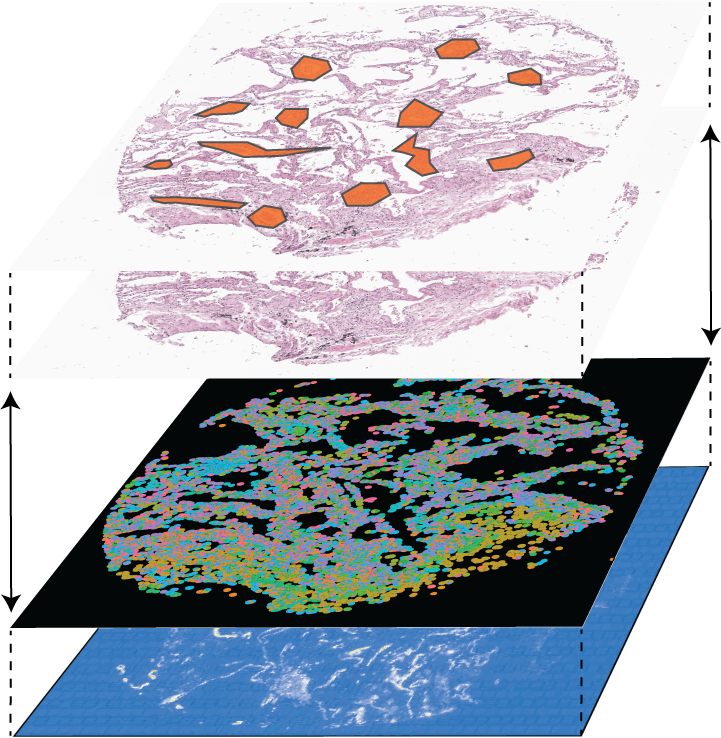
Integrating data modalities within or across tissue sections |
Niche Clustering 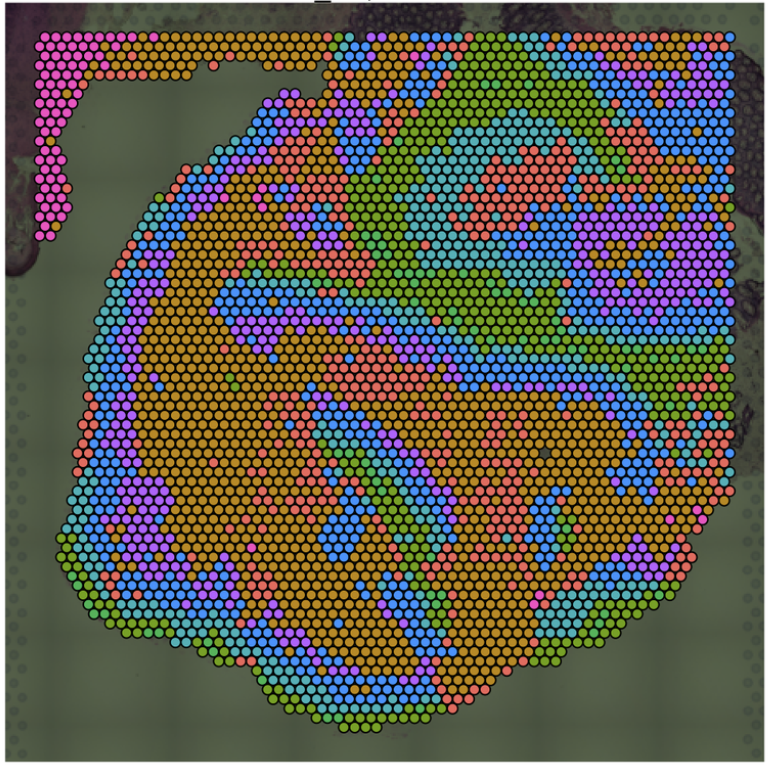
Clustering based on ROI/spot deconvolution and Spatial Neighborhood |
Additional Downstream Analysis
VoltRon is also capable of end-to-end analysis of diverse set of spatial data types (or spatial entities)such as ROIs (regions of interest), spots, single cells, molecules and even images. Users can set any data type as default at any time where VoltRon provides minimal set of functions to analyze, process and visualize each of these modalities.
|
Region of Interests (ROIs) 
Quality control, analysis and visualization of ROI segments |
Cells/Spots 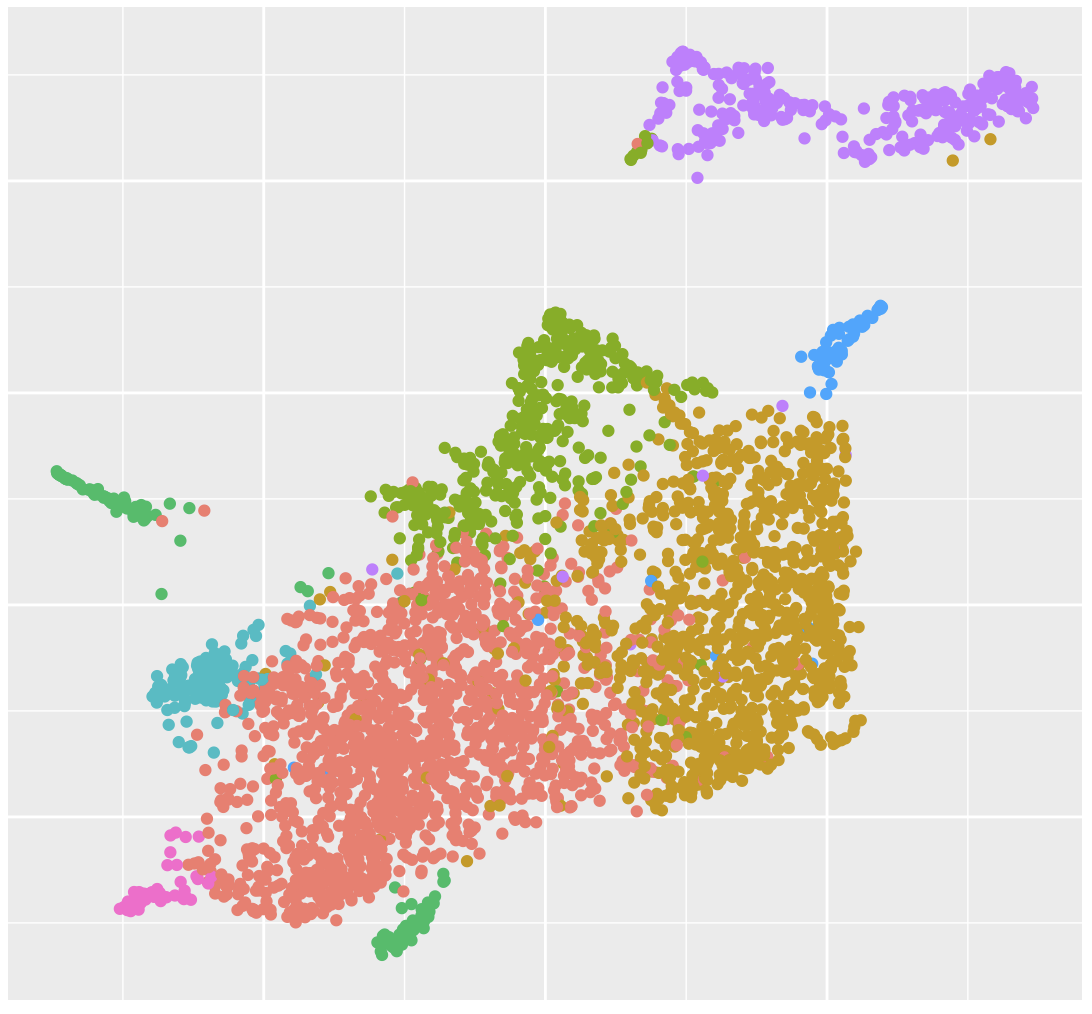
Quality control, analysis and visualization of Cell/Spot datasets |
Molecules 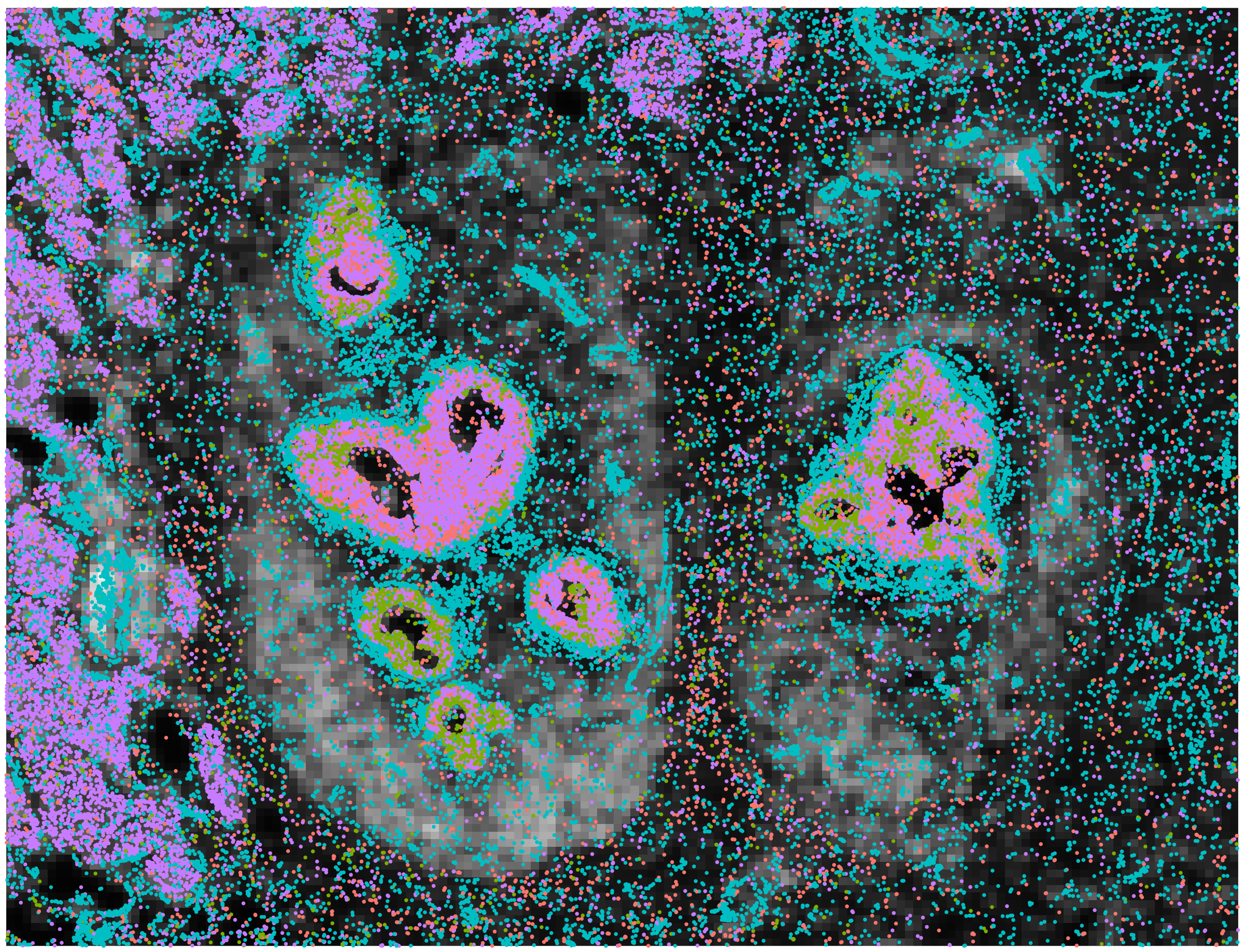
Analysis and visualization of Molecule datasets |
|
Image Tiles/Pixels 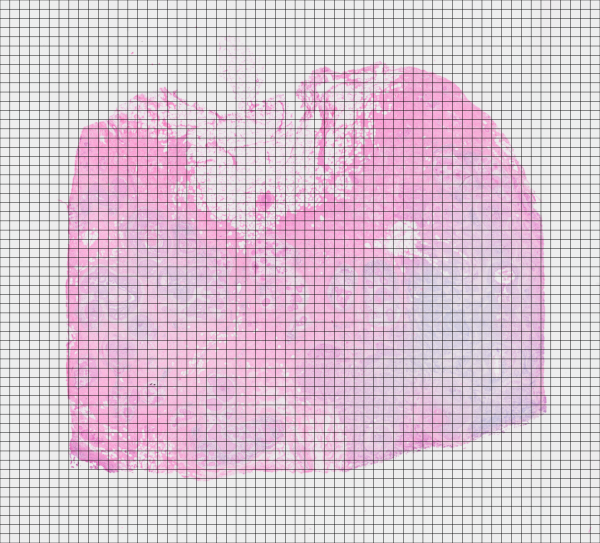
Analysis and visualization of Image datasets |
Other Utilities
Here, we provide a group of tutorials to use additional features of the VoltRon objects as well as further information on how to use VoltRon. We describe a collection of features that VoltRon package utilizes such as interactive annotation/visualization and importing spatially aware data from diverse spatial omics technologies. VoltRon is able to convert its objects to a diverse set of objects/datatypes commonly incorporated spatial data analysis (Seurat, SpatialExperiment, Giotto, AnnData etc.). Large VoltRon objects can be saved on-disk and efficiently analyzed without straining memory.
|
Interactive Utilities 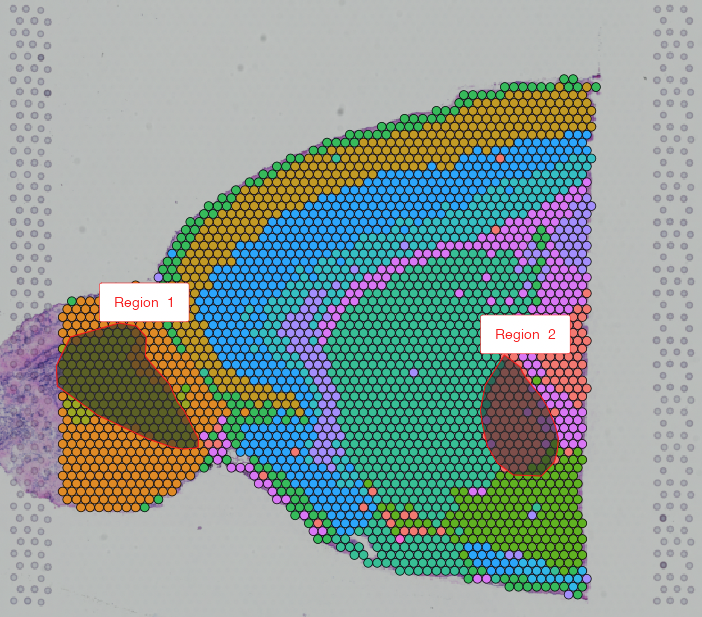
Interactive annotation and visualization |
Working with VoltRon Objects 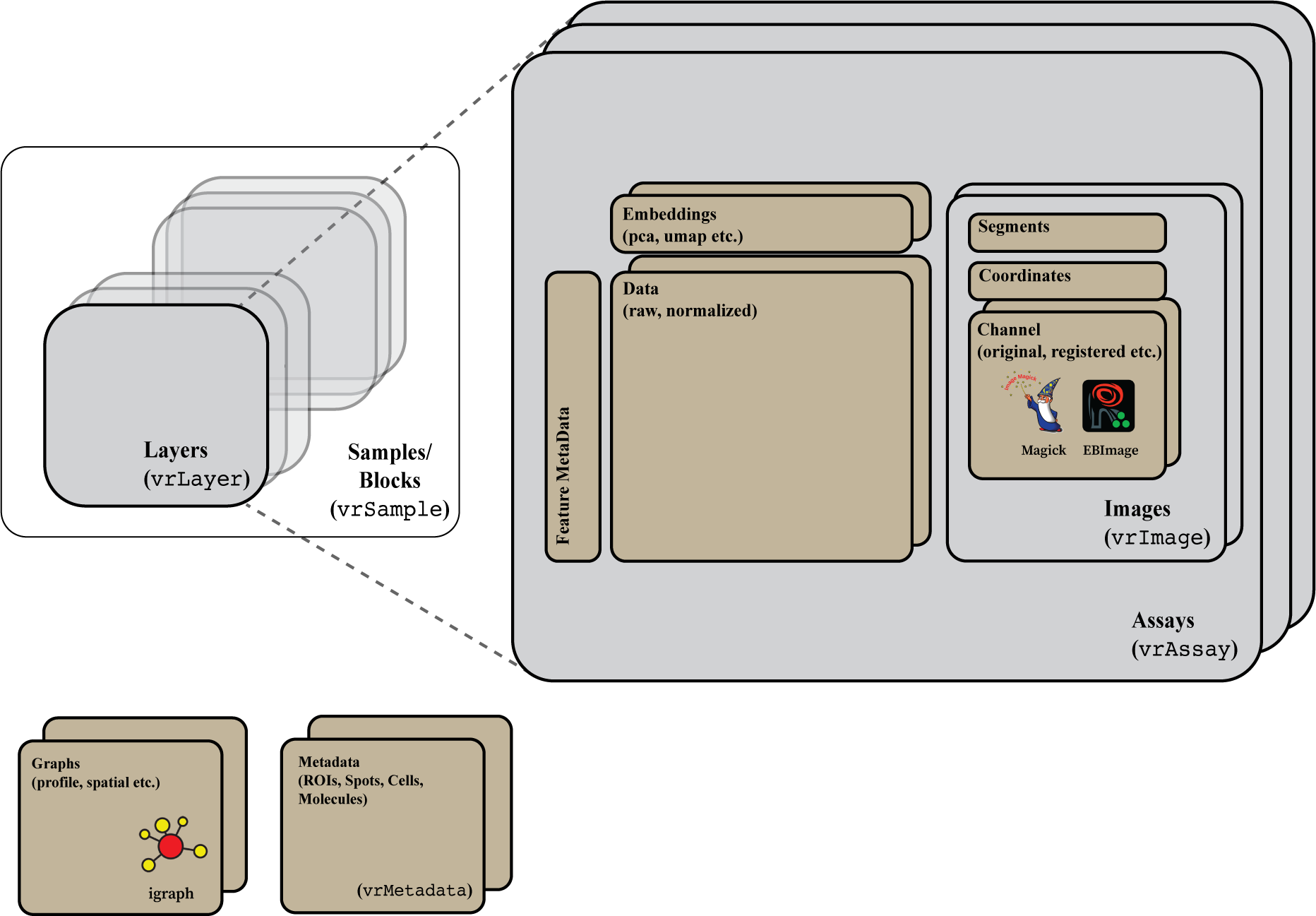
Manipulating and configuring VoltRon objects |
Importing Spatial Data 
Importing readouts of spatial technologies |
|
Converting VoltRon Objects 
Converting VoltRon objects into Seurat, SpatialExperiment and Squidpy (anndata) etc. |
Disk-backed Spatial Analysis 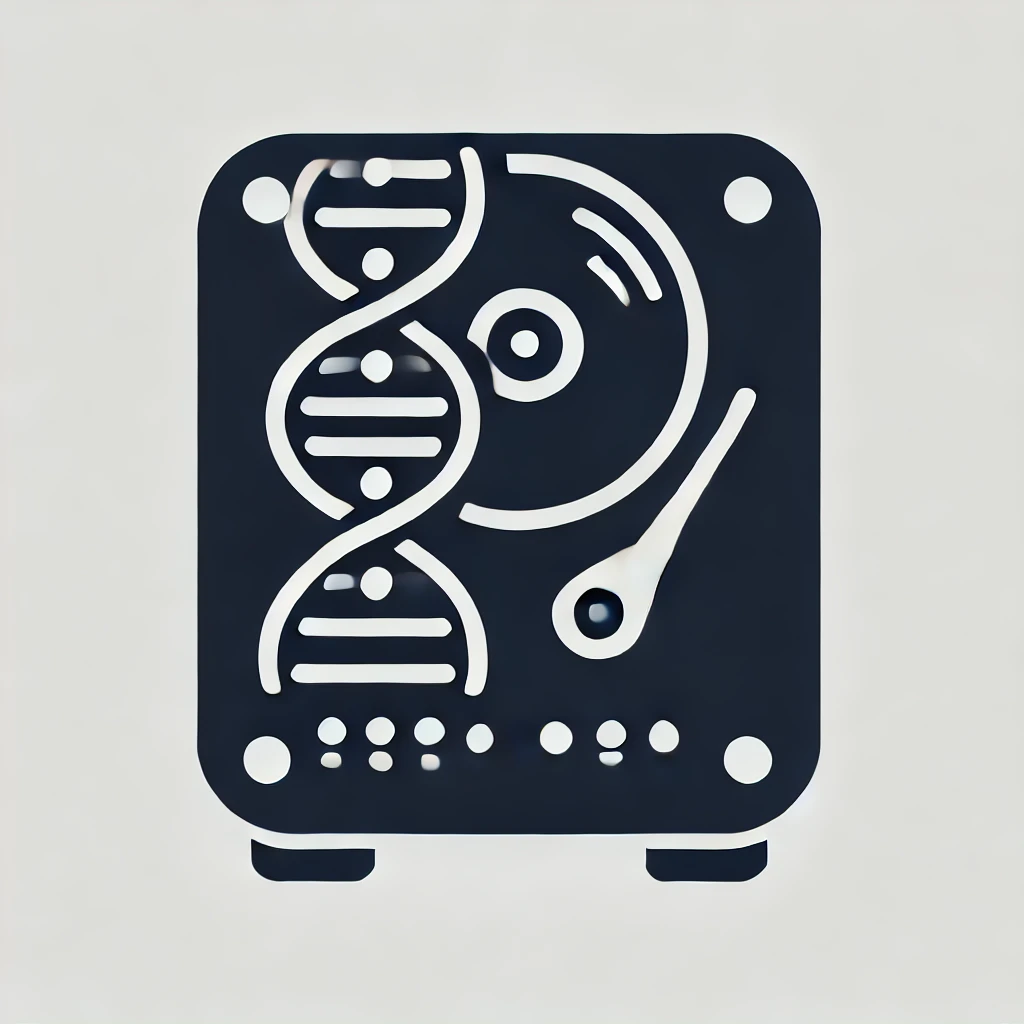
Efficient access to large VoltRon objects |